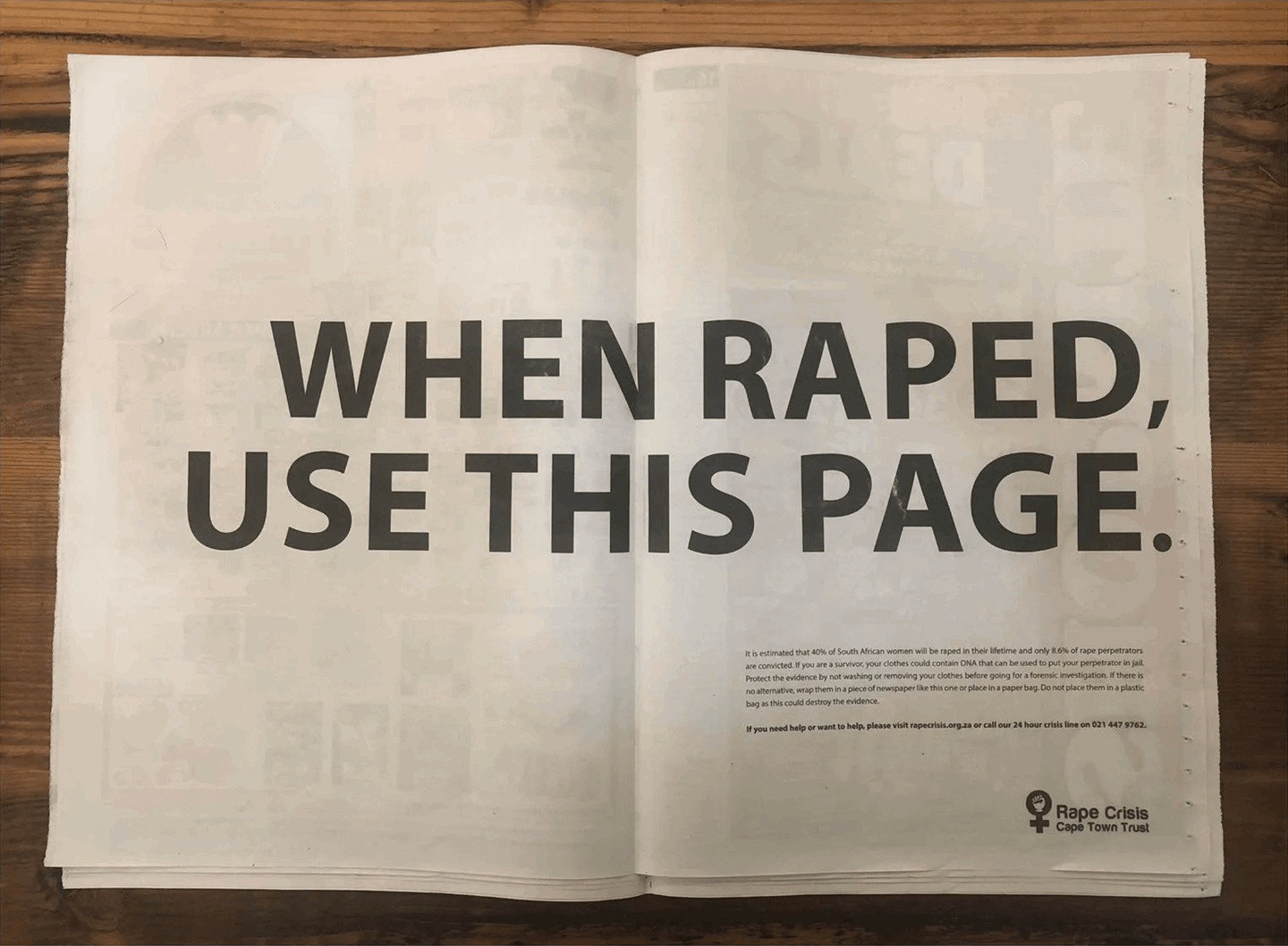We understand the power that print holds. And nowhere has this been demonstrated more profoundly than in The Rape Page - Ogilvy’s Cannes Lions Silver-winning campaign for Rape Crisis that went viral to reach an incredible 7.1 million South Africans.
Rape Crisis estimates that a shocking 40 per cent of South African women will be raped in their lifetime, while only 8.6 per cent of the perpetrators are convicted. There are various reasons for the low conviction rate, one of which is a lack of solid and usable evidence. Many people mistakenly believe that evidence can be collected in a plastic bag, while in fact evidence can degrade in plastic, making it inadmissible. However, something as simple as wrapping belongings in paper that has greater preservation qualities can make all the difference.
And that’s how a graphic double page spread in a newspaper became a tool for survivors and a tangible, awareness-raising resource in the fight against social change.
Ogilvy partnered with Rape Crisis to target the areas in Cape Town with the highest rape statistics, and chose the Athlone News to run a prominent centre spread that was sure to be seen and shared by a high proportion of the community. A stark sentence in heavy black type stands out against a sea of white, stating: ‘When raped, use this page.’ And a short message cautions survivors against washing clothes as the DNA they carry can be used to put a perpetrator in jail. Instead, says the ad, preserve the evidence by wrapping clothes in the newsprint. Accompanying the advice is the number for their 24-hour crisis line.
The ad is shocking in its bare simplicity. But with survivors feeling helpless against the low conviction rate, Ogilvy felt that only something so disruptive would empower survivors enough to seek help from Rape Crisis, as well as successfully putting the spotlight on the country’s grim rape statistics.
Influencers, women’s groups, media publications, opinion leaders and medical experts were mobilised to spread the message online, and within moments, word had spread. Within hours, Rape Crisis representatives appeared on national radio stations, spreading the message far and wide. And by the end of the day, from the original centre spread in print, The Rape Page had reached over 7.1 million South Africans.


